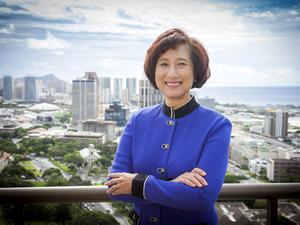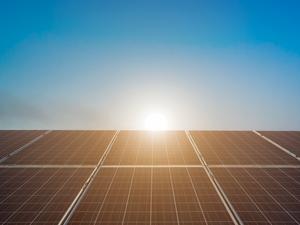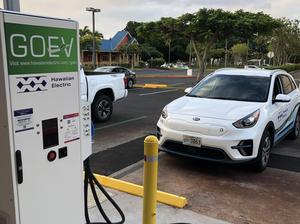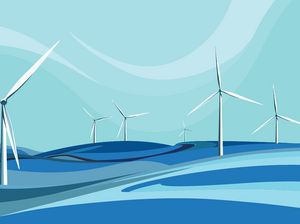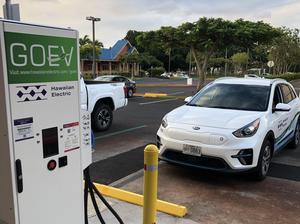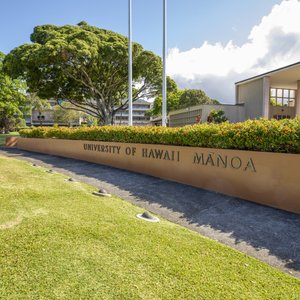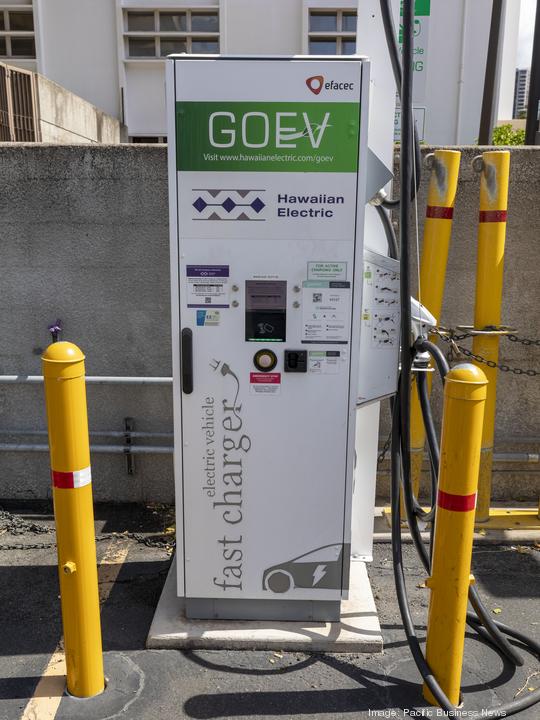
Hawaiian Electric Co. proposed this week a dramatic expansion of its electric vehicle charging network on Oahu, Maui and Hawaii Island and awaits Hawaii Public Utilities Commission approval to go ahead with the estimated $79 million project.
HECO proposes installing, operating and maintaining 150 single-port DC fast charging stations and 150 dual-port Level 2 charging stations among 75 public sites between 2023 and 2030, as well as lowering charging costs seen currently in its 25-plus fast chargers in its service territory.
According to the utility, its proposed charging rates would be cost-competitive with gasoline — 20% to 46% below the pilot program's rates, depending on the island and time of day — and would encourage charging during the middle of the day when solar energy is abundant.
Capital costs are estimated at $58 million and operations and maintenance at $21 million.
Using a public feedback tool for where public chargers should be located, HECO received 2,045 survey responses and recorded 1,812 pins suggesting future charging sites. The results would be considered among other factors to determine placement of chargers, HECO said.
HECO officials noted that there are 16,693 EVs registered in its service territories — all main islands except for Kauai — as of September, or just 1.6% of the total passenger vehicles registered. A large investment in infrastructure is necessary to spur EV adoption toward the state's carbon-neutral goal by 2045, according to a HECO report.
Third-party introduction of fast chargers has not materialized, it added; the state has only six fast chargers not owned by HECO.
HECO's proposed expansion would cover about 12% of the public charging ports needed by 2030, it said.
“Providing drivers with expanded public charging options is critical to serving more electric vehicles on Hawaii’s roadways,” said Aki Marceau, HECO director of electrification of transportation, in a statement. “Hawaiian Electric is committed to taking action on climate change by helping to decarbonize Hawaii’s economy, and electrifying ground transportation is a major part of that effort.”
About 60% of the sites would be on Oahu, 20% in Maui County and 20% on Hawaii Island.
Site hosts would commit the space for a charging station, but would not be responsible for operating and maintaining it, HECO spokesman Alan Yonan told Pacific Business News. "That’s a pretty good deal for the site host," he said in an email.
HECO stated it would recover the $79 million cost from customers over the seven-year life of the project, but it also requested recovering some of the money with the PUC through the Exceptional Project Recovery Mechanism.
"The Commission has just started reviewing the proposal. The next steps in the docket will include ruling on any motions for intervention or participation and setting a procedural schedule," PUC Chair Jay Griffin said in an email to Pacific Business News. "The Commission is also aware funding may be available to support electric vehicle charging through the [federal] infrastructure bill and will be monitoring the final outcome in Congress with an eye toward potential opportunities to support this and other initiatives in the state.
"The PUC will still need to determine whether Hawaiian Electric’s requests are reasonable, including feasibility of the proposal and proposed methods for the utility to recover costs."
